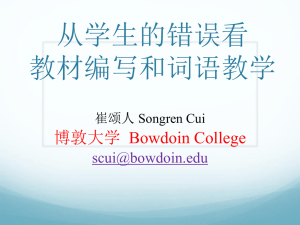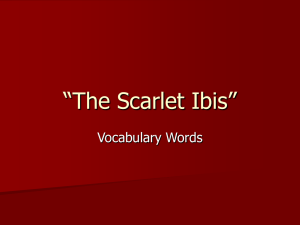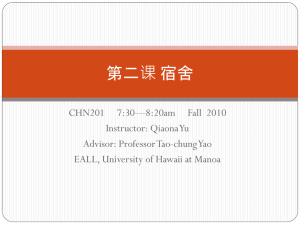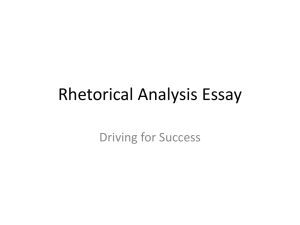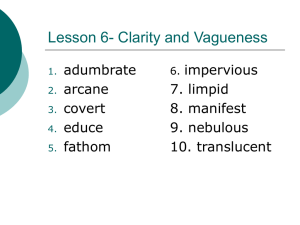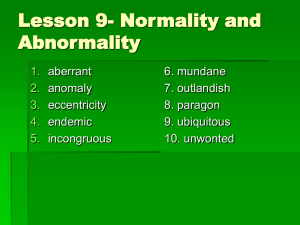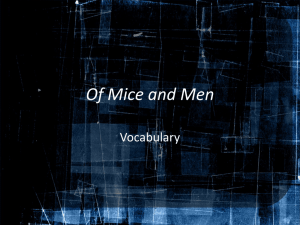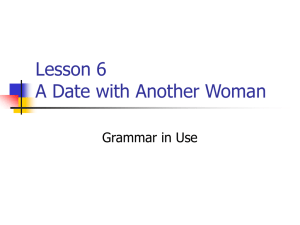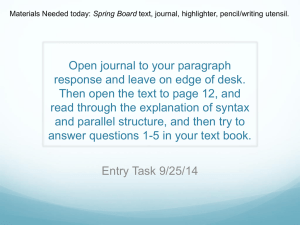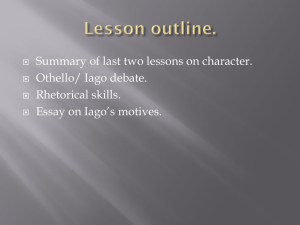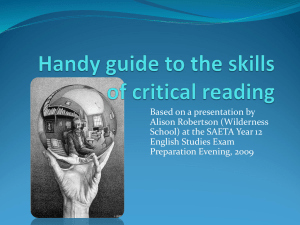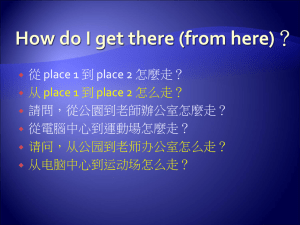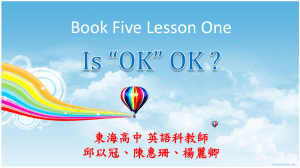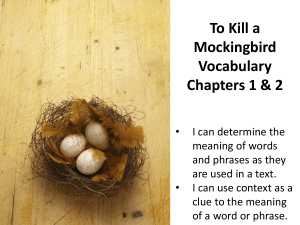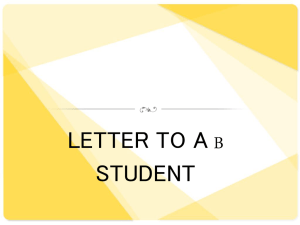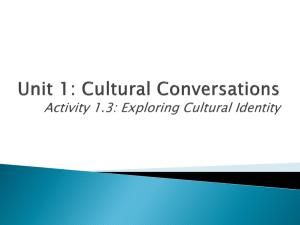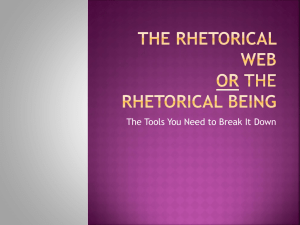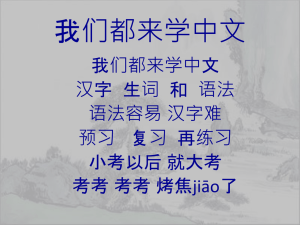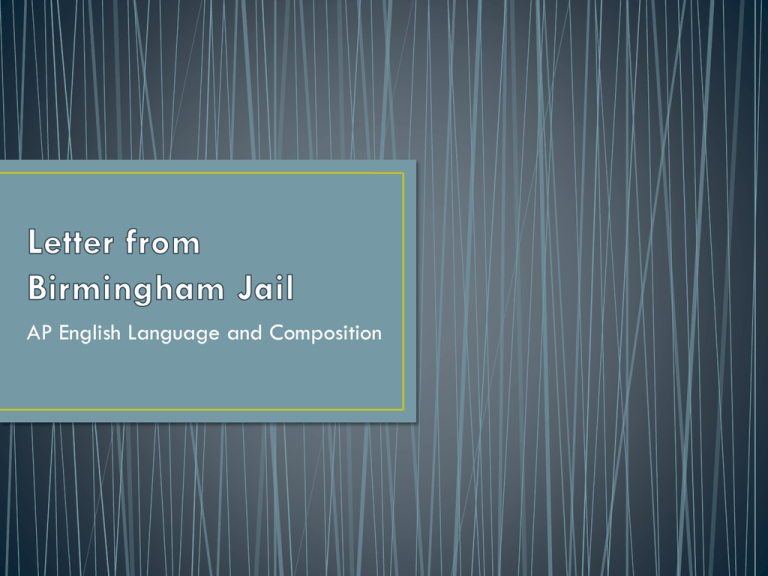
AP English Language and Composition
• What four specific accusations do they make against King?
•
•
•
•
King is an outsider
He and his followers should negotiate for change rather than demonstrate
Their actions are “untimely”
There is no justification for breaking the law
• Provide one example of ethos, logos, pathos from the
statement.
• Directions: Using a four column organizer, define each word, write a sentence that
includes an example, and draw a picture or symbol to help you recall the definition.
• Word
Definition
Example
Picture
• 1. Anaphora – the repetition of a word or expression at the beginning of successive
phrases for rhetorical or poetic effect.
• 2. Rhetorical question: a question solely for effect, with no answer expected. By the
implication that the answer is obvious, it is a means of achieving an emphasis stronger than
a direct statement
• 3. Antithesis: figure of speech in which a thought is balanced with a contrasting thought
in parallel arrangements of words and phrases
• 4. Allusion: figure of speech which makes brief reference to a historical or literary figure,
event or object; a reference in one literary work to a character or theme found in another
literary work.
• 5. Imagery: devices which appeal to the senses; a group of words that create a mental
picture.
• 6. Asyndeton: the omission of conjunctions that ordinarily join coordinate words and
phrases.
• 7. Alliteration: sound device, repetition of beginning consonant sounds
• 8. Syllogism: the underlying structure of deductive reasoning, having a major premise, a
minor premise, and a conclusion based on logic. They are either valid or invalid.
• 9. Syntax: the arrangement of words in a sentence, the grammar of a sentence
• 10. Diction: an author’s choice of words
• Directions: Using a two column organizer, for each word: definition, part of speech,
synonym, antonym, picture, sentence.
• 1. cognizant (adj): having or showing knowledge or understanding.
• 2. repudiate (v): strong rejection -- especially when the idea or thing being rejected was
once embraced
• 3. emulate (v): to copy
• 4. pious (adj): behaving in a highly moral or religious manner
or less commonly: behaving highly moral in a self-righteous or holier-than-thou manner
• 5. relegate (v): assign to a less important position or classification
• 6. futile (adj): effort that is pointless because it is unproductive or unsuccessful
• 7. latent (adj): potentially existing but not presently evident or active
• 8. provincial (adj): unsophisticated (meant disapprovingly to refer to old-fashioned or
narrow-minded attitudes and ideas)
9. fetter (v): to restrain or hinder or more archaically: a shackle for the ankles
• 10. incorrigible (adj): unresponsive to correction (even by punishment)
• 11. sanctimonious (adj): acting morally superior to others
• 12. moratorium (n): a temporary stop to an ongoing activity
13. inextricable (adj): impossible to extract, disentangle, or avoid; or hopelessly intricate
• 14. languish (v): to suffer in a bad situation for a long time
• 15. admonish (v): to express disapproval to someone of their actions; or to warn or
advise someone
• Finish vocabulary assignment
• Finish reading King’s Letter from
Birmingham Jail
• Your writing assignment will focus on
analyzing the use of rhetorical
devices as a means of persuasion. I
highly recommend taking notes and
tracking these devices (including
ethos, pathos, logos) as you read so
you have them readily available
when you are constructing your
essay.
•
•
•
•
•
•
•
•
•
•
•
1. What is King’s tone in the opening paragraph? How might you make an argument for it being ironic?
2. Why does he arrange paragraphs 2-4 in the order that he does? How would reversing the order have
changed the impact?
3. How do King’s allusions to biblical figures and events appeal to both ethos and pathos?
4. Why does King go into such detail to explain the basic principles and process of the nonviolent protest
movement?
5. In the long sentence in paragraph 14 (beginning with “but when you have seen…”), why does King
arrange the “when” clauses in the order that he does? Try repositioning them and discuss the different effect.
6. Paragraph 16 exerts a strong appeal to logos. How can you express King’s argument(s) in a series of
syllogisms?
7. What are the rhetorical strategies in paragraph 25? Identify at least 4
8. What are the chief rhetorical strategies in paragraph 31? Identify at least 5
9. King uses various kinds of repetition – repetition of single words or phrases, of sentence structures, and of
sounds. Focusing on a passage of one or more paragraphs’ length, discuss the effect of King’s use of
repetition.
10. Why does King wait until the end of his “Letter” (paragraphs 45 and 46) to address the clergymen’s
claim that the Birmingham police behaved admirably?
11. Considering the final three paragraphs as King’s conclusion, discuss whether you believe it is rhetorically
effective.
• Who is the Speaker?
• What is the Occasion?
• Who is the Audience?
• What is the Purpose?
• What is the Subject?
• What is the Tone?
• This strategy serves two
purposes:
• As a way to analyze an
essay that you have read
• As a way to prepare for
an essay you will write.
• The voice that is
speaking. Identification
of the historical person
(or group of people)
who created the primary
source.
• What do we know about
this historic or
contemporary person?
• What role does he play
in an historic event?
• King:
• Preacher
• Civil Rights activist/leader
• Unjustly arrested
• Father – worried about the
future of his kids in a
segregated south.
• Led non-violent protests
• What is the time and
place? The context in
which the primary source
was created?
• What is the Geographic
and Historic intersection
at which this source was
produced?
• King:
• A reply to an open
statement that his actions
were unwise and untimely
• Civil Rights Movement
• From a Birmingham Jail
• He wrote on scraps, then a
legal pad. It was edited
and published for the
public.
• The readers to whom this
document is directed.
• The audience may be
one person, a small
group, or a large group;
it may be a certain
person or a certain
people.
• King:
• Clergymen
• Public
• Birmingham police
• People for segregation
• People who did not
necessarily care to take
sides.
• What is the reason behind
the text
• Why was it written?
• What goal did the author
have in mind?
• Respond to the open
statement
• Justify actions – address
accusations against King
• To protest and show
unjustness of segregation
• Rally support
• Show impatience of black
community
• Define terms like “just”and
”unjust”, “non violent
protests”
• What is the general
topic, content, or idea
contained in the text?
• Summarize in a few
words or phrase.
• King:
• What is the attitude
expressed by the
speaker?
• Examine the choice of
words, emotions
expressed, imagery used
to determine the
speaker's attitude.
• King:


